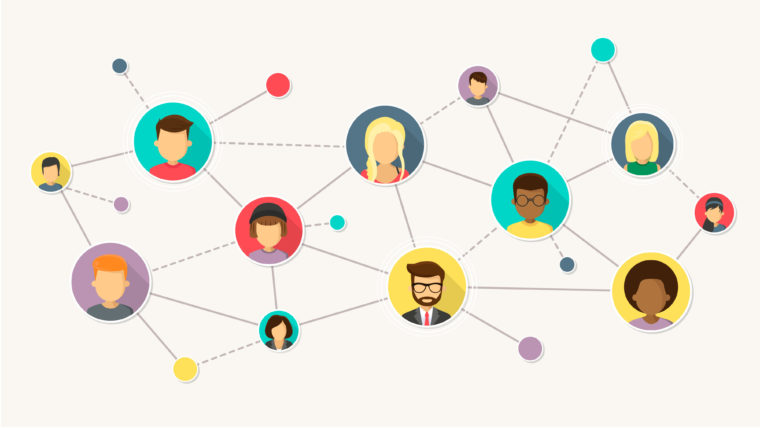1 Find connections
“First thing you’ve got to do is find the people you want to network with — LinkedIn is a great resource; you can do tailored searches — and then you reach out to them. I always advise our students to send a snail-mail letter as an introduction. Tell a little bit about who you are and what you want. Then keep the ball in your court. State something like the following: ‘I realize how busy you are, but I’ll reach out to you next week to see if we can set up a time to talk. Feel free to contact me at either my email address or my phone number.’ Then when you follow up with the call, you can reference the letter you sent.”
— Mark Smith, JD ’86, is the associate vice chancellor and dean of career services for Washington University.
2 Get advice
“In a meeting, what you’re trying to do is get them talking, so you can learn. First, you should thank them, obviously. And then you should ask lots of questions about what they do. Ask things like, What do you like about your job? What don’t you like? How do I best prepare for this kind of career? Then you can ask for advice on your résumé and on your pitch from somebody in the field — a person who knows what that field expects. Later, you could even ask about what you’re most interested in, which is hiring practices and prospects. Do you take interns? Would someone with my background be competitive? Do you hire laterals? What should I do to maximize my chances for an offer? Whom should I contact to apply?”
— Mark Smith
3 Stay in touch
“After being introduced to connections, ask if you could link to them on social media. (LinkedIn is great for professionals.) Share an article with them that applies to their interests; follow up about information they might have shared, such as asking how their recent trip was or how their latest project is going. People love to know that you’re listening to them, and small gestures can go a long way to build rapport with someone new.”
— David Dresner, BSBA ’10, has started a customizable beverage sleeve company, Sleeve a Message; its sister company, Coast a Message, for custom coasters; and a gourmet potsticker restaurant, Crispy Edge.
4 Network — it’s for everyone
“It’s a fallacy to think that informational interviewing is not for you if you’re later in your career. If you look up the definition, an interview is basically a conversation. It isn’t necessarily tied to getting a job. An interview can be about just seeking information or about roles opening in the future. It can be about how to make an impact at your current company, how to navigate inside your company for better roles, how to be recognized. I even think folks who are exiting their careers could be doing informational interviews. Informational interviews, or conversations, will always give you ideas and thoughts — and essentially new paths.”
— Lisa Hebert is a career coach at the Weston Career Center at Olin Business School. She is a certified professional résumé writer and reach social branding analyst. Prior to Olin, she worked as a consultant and in industry, focusing on strategy and supply chain, for 30 years.
5 Do your research
“It’s important to research the person you are talking to as well as their role in their organization. I think that you can have a leg up by having insights about the company and the person: What’s new at the company? What’s interesting about that person? You can have a nice two-way conversation by showing that you have done some homework.”
— Anne Petersen is a career specialist at the Weston Career Center at Olin Business School. Earlier, she held senior positions in brand marketing, leadership development and innovation at Anheuser-Busch.
6 Connect better with colleagues
“Societal norms often reinforce leaving the personal at home and sticking strictly to professional topics at work or in professional settings. But in my research, I found a persistent positive relationship between what colleagues know about your personal life and how they treat you at work. Across several different populations, including consulting teams, I found that the more information colleagues have about your personal life, the more likely they are to be responsive toward your needs (e.g., help you reach your goals) and the less likely they are to undermine you (e.g., take credit for your work). When colleagues know about your life outside work, they are more likely to see you as a human being with your own hopes, needs and feelings.”
— Ashley Hardin, assistant professor of organizational behavior, researches relationships, work-life boundaries and unethical behavior at work.



